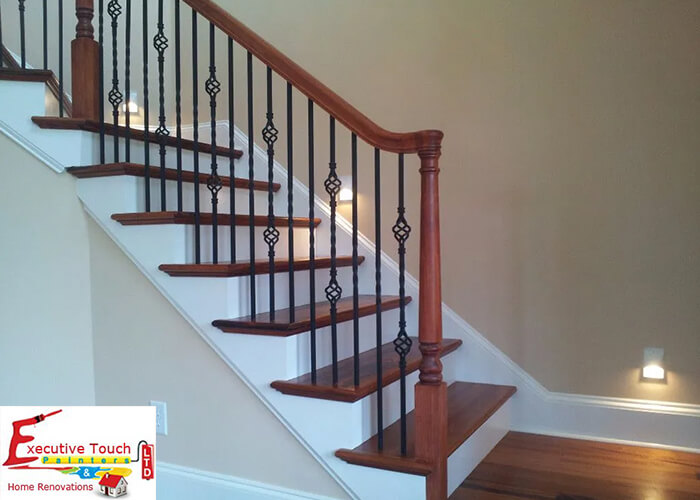
Wainscoting is a process of attaching wood to the walls of your house as a decorative or protective accent. Wainscoting is often overlooked in the process of home renovation, but it will have an impact on the house after finishing. The process of Wainscoting in Toronto is followed to protect the walls from dents or gouges. A practical decorative touch will make your home look much beautiful. Tongue and groove wood or a simple wooden decorative piece can be used to cover the bottom of a wall up to 5 feet. Depending on your taste and budget, you can install pre-made or create your designs.
Wainscoting is a design feature that adds depth to your room walls. Here are some of the major types used by most of the house owners
Custom wainscoting is the most requested design as it is suitable for all types of walls. There is an endless number of wainscoting styles that can be prepared even from a larger selection of small trims. Wainscoting installations are mostly custom made and are prepared on-site. You need to sit down with a design consultant to describe all the pictures that you might have seen, and it can become a reality in your house.
The first-ever wainscoting style was developed in Georgian periods. This styling is prepared by pushing a wooden panel slightly into the room so that it is on the front of all styles and rails. This form of Wainscoting is famous in England, and the bevelled edge created by the moulding looks beautiful and noticeable. Till today raised panel wainscoting is the most formal style used.
Recessed Wainscoting was developed in North America during the 19th century. The panels are placed a little deeper than rails and styles to give a recessed appearance. There are no mouldings used, so there is a natural look for your house. This type of styling is mostly used in Mission buildings and also in Craftsman houses. Shaker wainscoting is installed on drywalls, and you can also use panel moulding inside the shaker panels to add more depth and character to your design.
It is the perfect choice when you want to protect your walls from damages and also give decoration. Beadboard type is installed for walls in bathrooms, kitchens, laundry rooms, mudrooms, nurseries, and kid’s rooms. Quite popular in the Victorian period and installed with beaded lines running vertically, while the rails were quite narrow. Today most of the people prefer beadboard wainscoting as it creates casual and country mood in the house.
Appliques are seen mostly in grand castles of Europe embossed in gold. This type of Wainscoting will add an elegant touch to any room of your house. There are endless combinations and can also be part of a contemporary look when properly installed and painted. In traditional Wainscoting, chair rail and panel mouldings are installed on the walls.
A flexible wainscoting style that can be used for contemporary or formal rooms. With this style, you could make a beautiful statement for your home. Panel wainscoting is used for a standard wall of height 38″, but can also be extended or customized regardless of ceiling height. The main advantage of this style is that you need not pay for extra material as the walls itself are used as panels.
When anyone enters your house, the first thing they notice is the accent walls. Accent walls are incredibly versatile and play a big part in all aspects of home decoration and design. With the correct layout and design, accent wall panels can transform your home into a haven of creativity and intelligence. From high-end to more serene look, these walls can help you to achieve any style and bring a new feel. Family homes often require a kind of secure or comforting feeling, and accent wall panels do especially well to embrace this idea. They apply that kind of tranquil and relieving factor to a lifestyle that is already hectic enough.
There are some series of steps followed in the installation of Wainscoting.
Before starting, you need to identify the panels used. Based on the instructions manual, decide if you need to prime the walls or not. Prepare the walls and remove the baseboard and outlet covers. If you can carefully pry the baseboard, you can reuse it in the future.
The top and bottom of the Wainscoting are held in place by a cap rail, and a baseboard nailed into the studs. Locate the stud with a nail or stud finder and mark them both at floor level and just above the level line. Be sure to keep an eye on light switches and power outlets. You might need to cut the panels to cover these things.
Spread the glue over the panels and slip the boards into the desired place. Leave about 1/16-inch space between the edges, to allow for expansion in humid weather. Align the top edges with the low-level panels. When the board is placed over the stud, nail it in place.
Now nail the cap in place using #6 or #8 finishing nails. You need to cope inside corners if the rail is complex. Use caulk to fill the nail holes. You could also paint the Wainscoting to look beautiful.
Most of the contractors charge between $1000 to $ 5000. The rates also change based on the room size and style of panels used. Among the styles in Wainscoting, Beadboard is much costlier than other types.
Our team of professionals at Executive Touch Painters is ready to install Wainscoting in your house. Looking for Wainscoting installing contractor in Toronto, then call us at (416) 410-0164 or contact us for more details.